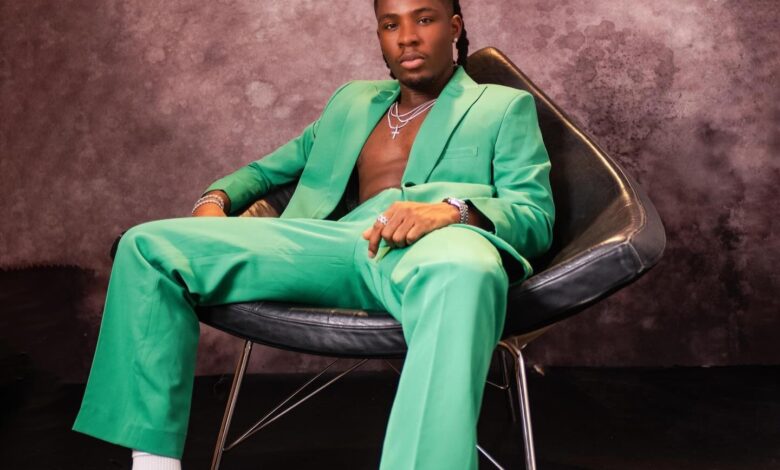Joeboy’s Viva Lavida: A Personal and Intimate Journey Into New Musical Terrain

While Joeboy is often seen avoiding the flashy and ostentatious trappings of the music industry, his ubiquitous presence in Nigerian music makes him a familiar face to fans and listeners alike. Since 2019, Joeboy has been featured on several notable hit records, including Alcohol, DJ Neptune’s Nobody, and CKay’s Love Nwantiti, all of which have become staples of the Afrobeats scene. It’s this collection of viral hits, unified by recurring themes of love and joy, that has propelled him to superstardom, and set a high standard for fans to measure his future work.
Joeboy’s third studio album, Viva Lavida, continues the trend of mid-tempo melodies and heartfelt romantic themes. Known for his melodic finesse, Joeboy offers yet another collection of songs that evoke emotions, but this time with a noticeable shift in his approach. Gone are the big-name collaborations and trendy club anthems that typified his earlier hits. Instead, Viva Lavida presents a more introspective Joeboy, one who seems less interested in chasing trends and more focused on crafting music that aligns with his true artistry.
The title Viva Lavida, a Spanish phrase meaning “live life”, encapsulates the album’s central message of love, laughter, and living fully. Executive produced by the talented Tempoe, who also contributes significantly to the album’s innovative production, Viva Lavida merges Joeboy’s signature style with a blend of experimental sounds, creating a rich sonic tapestry that pushes the artist to new heights.
Joeboy’s strength lies in his ability to mold melodies to fit a variety of musical contexts, seamlessly blending Afropop and R&B influences with fresh production elements. Tempoe’s contributions, particularly on tracks like Abena, Street Are Lonely, and Magdalene, enrich the album with innovative sonic textures that merge Highlife, Funk, and even Indian musical influences. These songs make up the spine of Viva Lavida, showcasing Joeboy’s emotive delivery and earnest songwriting.
The album opens with Innocent, where Joeboy embraces his vulnerability, admitting to being a hopeless romantic at the mercy of unrequited love. It’s a familiar story for the artist, yet the production elevates the narrative, adding a unique depth to the emotions expressed. Love’s bittersweet nature continues to be explored throughout the album, particularly on tracks like Street Are Lonely, Taxi Driver, SMH, and Magdalene. These songs delve into themes of heartbreak and longing, yet each is distinguished by its experimental production that sets them apart from the usual Afropop love ballads.
Joeboy’s penchant for romance remains a key feature of Viva Lavida, but the album also sees him branching out into moments of celebration and personal triumph. On Abena, he invites listeners to the dancefloor with infectious folk drums, while Adenuga, a vibrant Afropop track, sees him boasting about his wealth alongside the promising young talent Qing Madi. The track Free of Charge sees Joeboy team up with Olamide Baddo, combining folk drums and horns to deliver a breezy hit that is both catchy and playful.
Even when Joeboy embraces trendy sounds like amapiano log drums on Osadebe, he retains his distinctive cadence. The track, named after the late Nigerian music legend Osadebe, samples the iconic Osondi Owendi and adds a subtle yet modern twist. Hey Father offers yet another example of Joeboy’s willingness to experiment with new styles, as he adopts an Asake-like flow over a relaxed beat while maintaining his characteristic ease.
Throughout the album, Joeboy exudes a sense of self-assurance. On Sinnerman, he confesses to his flaws and the continuous search for comfort, while the closing track, I’ll Be Okay featuring Wizard Chan, provides a sense of hope with its breezy blend of jazz, funk, and highlife elements. The track’s uplifting message encapsulates the album’s central theme: that no matter the struggles, tomorrow will be fine.
Viva Lavida marks a new phase in Joeboy’s career—one where he seems less concerned with chasing the next big hit and more focused on creating music that resonates with his true self. It might lack the obvious pop star ambitions that many expect from an artist of his caliber, but it’s undeniably original and filled with personal depth. In an era where digital platforms dominate, Joeboy’s digital footprint has allowed him the freedom to step away from the pressures of trendy collaborations and instead focus on a more intimate, authentic sound.
While Viva Lavida may not be groundbreaking in terms of genre-defying experimentation, it’s a clear statement that Joeboy is comfortable with where he is in his journey. The album sets the foundation for future projects that might further refine and evolve his sound.
Ultimately, Viva Lavida asks the question: can Joeboy redefine what it means to be a pop star? Time will tell, but the album makes it clear that Joeboy is on a path toward reimagining what it means to create music that is both personal and universally relatable.




